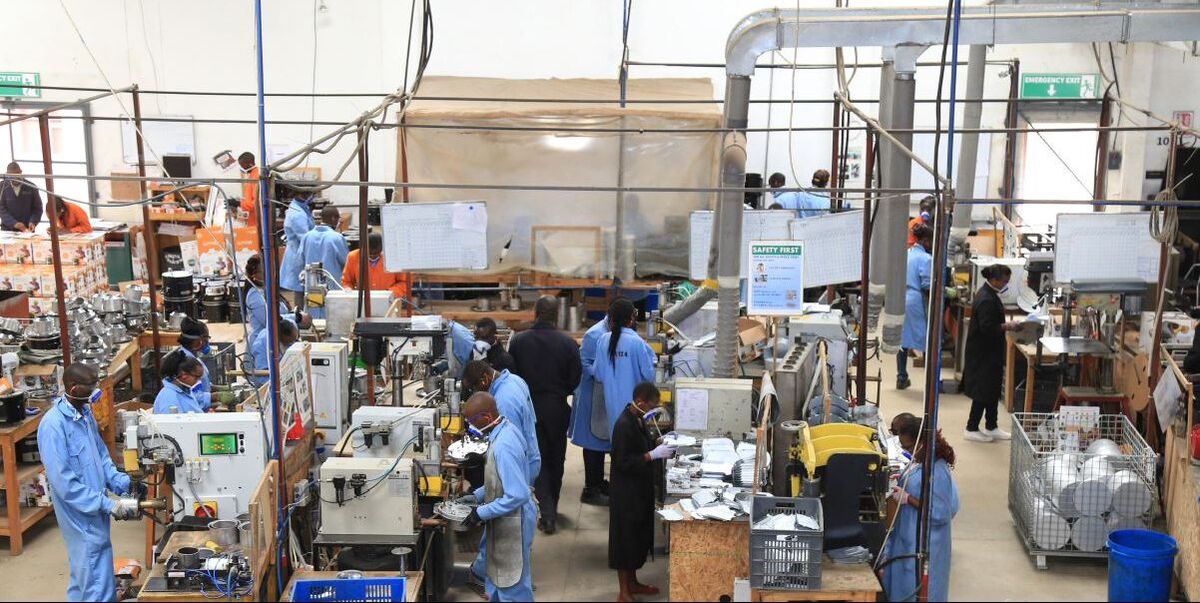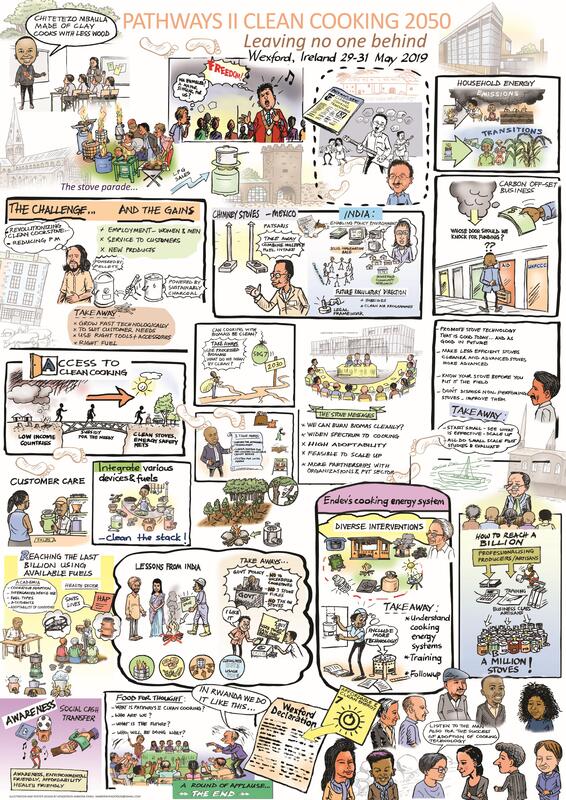↓ ↓ ↓ Please scroll to the bottom to see who has signed up so far ↓ ↓ ↓
WEXFORD DECLARATION
Leaving no-one behind
We the undersigned:
Affirm that energy for cooking is essential for human wellbeing and that the nations of the world have committed to ensuring access to affordable, reliable, and sustainable energy for all by 2030
Recognise that billions of people depend on wood and other biomass to cook their daily meals and that for many of them, particularly the rural poor, it will be the only fuel option available for decades to come
Note with great concern that across the world biomass continues to be burned inefficiently, in unvented and pollution-emitting devices that are globally responsible for four million avoidable deaths annually; for severe forest degradation in specific areas; and for the large-scale emission of greenhouse gases
Emphasise that wood and other biomass, when managed and treated properly and burned in efficient devices, can provide a low-emission, affordable, readily available, sustainable energy source
Underline that advances in biomass-burning devices, fuel processing, and distribution have demonstrated that biomass can be one of the cleanest energy options
Confirm that a diversity of solutions, including biomass options, is needed to satisfy the wide range of household energy needs and to achieve international goals on human health, environmental quality, climate change mitigation and energy justice
Assert that improving biomass options for cooking and other household energy services can be an effective climate, energy and gender strategy that can immediately enhance families’ health and wellbeing – especially for women and children – and can help preserve the world’s vital storehouses of carbon and biodiversity
Acknowledge that families regularly make parallel use of multiple devices and fuels for different types of cooking practices and other tasks, which is an approach known as ‘stacking’. Accordingly, we recommend holistic approaches to sustainable cooking that address all elements of the ‘stack’
Call urgently for the provision of the large-scale funding which is profoundly needed for the sustainable cooking sector and the expeditious fulfilment of existing funding pledges, which amount to hundreds of millions of dollars
Call on organisations that fund climate change mitigation projects to prioritise those initiatives that provide immediate emissions reductions and social benefits through sustainable cooking to the communities most vulnerable to climate change
Call on citizens to help address this clean cooking challenge by using choices, as consumers, to support organisations or companies that lead the way. We further call on citizens to appeal to their elected representatives to urgently prioritise sustainable household energy in their health, climate and development policies
Call for a clarification of the United Nations’ Sustainable Development Goal 7 as it currently stands, to the effect that biomass and biomass-burning devices can meet the definition of clean fuels and stoves
Call for a sector-wide discussion to re-define sustainable energy indicators that are technology and fuel neutral and reflect true access to affordable, reliable, and sustainable energy for all
Commit to working towards universal access to sustainable energy for cooking and other household needs, and in so doing, we commit to building relationships with the full range of stakeholders, institutions, and disciplines necessary to achieve this goal
The Pathways Conference Participants - leaving no one behind
Affirm that energy for cooking is essential for human wellbeing and that the nations of the world have committed to ensuring access to affordable, reliable, and sustainable energy for all by 2030
Recognise that billions of people depend on wood and other biomass to cook their daily meals and that for many of them, particularly the rural poor, it will be the only fuel option available for decades to come
Note with great concern that across the world biomass continues to be burned inefficiently, in unvented and pollution-emitting devices that are globally responsible for four million avoidable deaths annually; for severe forest degradation in specific areas; and for the large-scale emission of greenhouse gases
Emphasise that wood and other biomass, when managed and treated properly and burned in efficient devices, can provide a low-emission, affordable, readily available, sustainable energy source
Underline that advances in biomass-burning devices, fuel processing, and distribution have demonstrated that biomass can be one of the cleanest energy options
Confirm that a diversity of solutions, including biomass options, is needed to satisfy the wide range of household energy needs and to achieve international goals on human health, environmental quality, climate change mitigation and energy justice
Assert that improving biomass options for cooking and other household energy services can be an effective climate, energy and gender strategy that can immediately enhance families’ health and wellbeing – especially for women and children – and can help preserve the world’s vital storehouses of carbon and biodiversity
Acknowledge that families regularly make parallel use of multiple devices and fuels for different types of cooking practices and other tasks, which is an approach known as ‘stacking’. Accordingly, we recommend holistic approaches to sustainable cooking that address all elements of the ‘stack’
Call urgently for the provision of the large-scale funding which is profoundly needed for the sustainable cooking sector and the expeditious fulfilment of existing funding pledges, which amount to hundreds of millions of dollars
Call on organisations that fund climate change mitigation projects to prioritise those initiatives that provide immediate emissions reductions and social benefits through sustainable cooking to the communities most vulnerable to climate change
Call on citizens to help address this clean cooking challenge by using choices, as consumers, to support organisations or companies that lead the way. We further call on citizens to appeal to their elected representatives to urgently prioritise sustainable household energy in their health, climate and development policies
Call for a clarification of the United Nations’ Sustainable Development Goal 7 as it currently stands, to the effect that biomass and biomass-burning devices can meet the definition of clean fuels and stoves
Call for a sector-wide discussion to re-define sustainable energy indicators that are technology and fuel neutral and reflect true access to affordable, reliable, and sustainable energy for all
Commit to working towards universal access to sustainable energy for cooking and other household needs, and in so doing, we commit to building relationships with the full range of stakeholders, institutions, and disciplines necessary to achieve this goal
The Pathways Conference Participants - leaving no one behind


